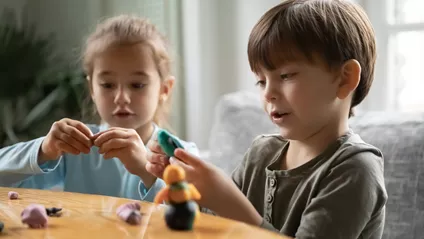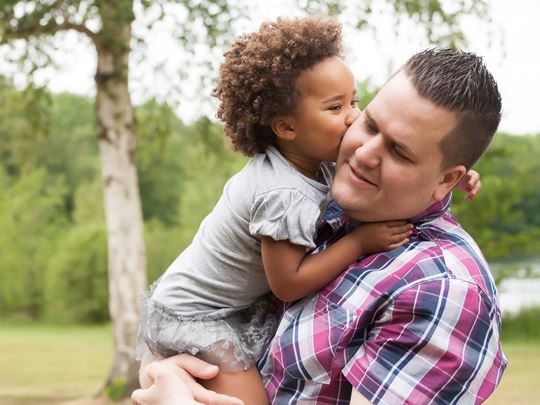With short-term foster placements you’ll support a child for a few weeks, months or even years while plans are made for their future.
Children need short-term fostering for a wide range of reasons, including looking after them while they’re waiting for their adoption to be finalised or whilst plans are made for their future.
Common reasons include family breakdown or the illness of a parent. But in most cases short term fostering placements are sought because a child has just come into care and more needs to be know about their background before longer term plans can be made.
In most cases, social workers and other authorities work hard behind the scenes to get the family back together. When it’s safe to do so, the child will return to their birth parents. Until that time, they’ll remain with a foster family. It’s usually impossible to say exactly how long a short-term placement will be, but it’s always as short as possible.
Most children come to ACS on a short term placement, but due to the nature of these placement, many develop over time to long term placements, because despite best efforts, returning home or going into adoption just isn’t possible for all children.
When we think of short term fostering, it is important to note that ‘short term’ does not reflect the amount of time but that the arrangement is not a formal long term approved placement.
Therefore, although some children stay with their foster family for a shorter period of time, foster parents do make longer term caring commitments to children on short term placements.
Most foster parents have the chance to support a number of different children, and many foster parents enjoy this aspect of the work and most rewardingly, often they keep in touch throughout a foster child’s life.
Foster children on short term placements may have emotional and behavioural issues and they’ll almost certainly be anxious and confused – especially if events have changed their lives suddenly. Having the support of a family who understands their faith and culture can be a huge help at this stressful time.
As a foster parent, your role is to make them feel at home, support them in their daily lives, such as getting them to school and supporting their long-term growth. You’ll also make sure they keep in contact with their birth parents where this is an agreed part of the care plan.
For however long they’re with you, they’ll become part of your life and family. And slowly but surely, you’ll become an important part of theirs.

Think you’d make a great foster parent?
Whether you’re ready to start your journey or just want to chat to an expert, we’re here to talk.
Enquiry
The company takes the requirements of GDPR seriously in ensuring the privacy and lawful processing of personal data provided to us by you. Please view our privacy notice which explains how the company will manage and use your personal data. This site is protected by reCAPTCHA and the Google Privacy Policy and Terms of Service apply.
Other types of fostering

Emergency fostering
Children often enter the care system at very short notice, and usually when there’s been a crisis at home. Emergency foster parents are on stand-by for these occasions. Emergency fostering is usually short term but can develop into longer placements.

Long term fostering
Typically this means two years and over, and usually until the child reaches the age of 18. It’s usually because they don’t wish to be adopted or aren’t able to return to their birth family – although they often stay in contact.

Fostering siblings
Here foster parents take on brothers and sisters together, improving their experiences and long term life chances. It demands more time and space and for this reason there’s a national shortage of foster parents for siblings.

Sanctuary-seeking fostering
More unaccompanied children are reaching the UK than ever, and all face an uncertain future in an unfamiliar country. There’s a real need for foster parents who speak their language and understand their culture.

Parent & child fostering
This is a truly specialist role, involving the short-term support of a pregnant young mum, but not exclusively. These placements help parents to learn vital parenting skills.

Fostering teenagers
Teenagers need a loving foster home every bit as much as younger children. But many people believe fostering teenagers will be more challenging. But our experience shows this isn’t the case.
Frequently asked questions
Can I choose the ethnicity of the child I foster?
Yes you can. As a faith and ethnicity based fostering agency, we aim to place children with families from the same cultural and ethnic background. Sometimes this isn’t possible but instead we identify foster parents who can meet the young person’s needs with our support and training.
Can I choose which age range or gender I would prefer to foster?
Yes you can. All of our foster parents are able to choose to take a child into their home or not. We will provide you with advice to help you, but the choice is yours. Sometimes our foster families choose a child of a given age to ensure their birth child’s place in the family is maintained for example, your eldest remains the eldest in the family. However, most of our foster parents are as open to a wide range of ages and all genders to ensure consistent fostering placements.
How long will I have to wait for my first placement?
This really depends on you and your family. The more open you are to a wide range of children the shorter time you will wait. Some families have children placed within a few days others can wait a few weeks or more depending on circumstance. We will always ensure the match between a family and a child is right, rather than rushing this process. As a new foster parent it’s also important to us, that we do all we can to ensure a successful start to your fostering career.
